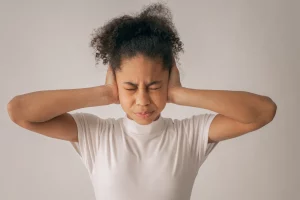2 Easy Meditation Techniques for Anxiety
Anxiety is a common mental health disorder that affects millions of people around the world. It can cause worry, fear, and uneasiness and range from mild to severe in intensity.
Anxiety can significantly impact an individual’s daily life, including affecting their ability to work or socialize with friends and family. If left untreated, anxiety can worsen over time and become debilitating for some individuals.
Treatment for anxiety typically includes therapy (such as cognitive behavioral therapy), medications (such as antidepressants or anti-anxiety medications), lifestyle changes (such as stress management techniques and meditation techniques for anxiety), or a combination of these options. With the proper care and support, individuals can manage pressure effectively and live happy, healthy lives.
Causes of Anxiety
Causes can vary from person to person, but some of the most common factors are genetics, environment, stress, trauma, and mental health conditions (such as depression or bipolar disorder).
Genetics can play a role in an individual’s likelihood of developing anxiety; for instance, research has found that individuals with a family history of anxiety are more likely to experience anxiety themselves.
Furthermore, environmental factors such as living in poverty or having experienced childhood abuse can put someone at increased risk for anxiety.
Stressful life experiences can trigger feelings of worry and fear, which can lead to the development of an anxiety disorder.
Finally, certain mental health conditions can also increase one’s risk of developing an anxiety disorder.

Meditation Techniques for Anxiety
Meditation is a powerful tool that can help individuals manage and reduce their anxiety symptoms. Meditation for anxiety involves relaxing the body and mind, focusing on breathing, and releasing tension. Meditation for anxiety helps to calm an overactive mind and allows for greater self-awareness of one’s thoughts and feelings.
Meditation may not cure anxiety, but it is an essential piece of the puzzle regarding managing this common mental health disorder. Meditation is a safe and effective way to help manage anxiety symptoms and reduce stress. The best meditation for anxiety can help individuals develop healthy coping strategies to deal with anxious thoughts and feelings and promote overall well-being. For those looking for additional support, working with a qualified mental health professional can provide more guidance on how best to manage anxiety symptoms over time.
Learning how to meditate for anxiety is easier than you may think. The simplest way to start is to find a comfortable spot, either sitting or lying down, and focus on your breathing. Take slow, deep breaths through the nose and out through the mouth. Please pay attention to how your breath feels and moves throughout your body. There are a couple of different types of meditation to help with anxiety:

- Guided Meditation: A popular form of meditation is guided meditation for anxiety. This type involves listening to an audio recording that guides you through different relaxation steps while focusing on specific themes such as peacefulness or calmness. Guided meditation for anxiety can help those new to meditation by providing structure, allowing them to relax more deeply without having to keep track of their thoughts or feelings.
- Mindfulness Meditation: Another type of meditation for anxiety is mindfulness meditation. This practice involves paying attention to how your body and mind feel in the present moment without judgment or reaction. Paying attention to how you think can help you become better attuned to anxious thoughts and how they manifest physically in your body. Knowing how anxiety manifests can help individuals recognize when their stress levels are rising and give them the tools they need to respond positively. By practicing mindfulness meditation for anxiety, individuals can become more aware of anxious thoughts and better recognize triggers that lead to anxious feelings. This awareness can help them respond more positively when anxious or overwhelmed. Other research suggests that mindfulness meditation for anxiety practices may also reduce physiological markers associated with stress, such as cortisol levels, heart rate, and blood pressure.
Regularly meditating can effectively manage anxiety over time, but it should not be used as a substitute for medical advice or treatment. Those looking for additional support may benefit from speaking with a qualified mental health professional who can provide more guidance on addressing their symptoms. With the proper care and support, individuals can learn how to manage their anxiety and lead healthier and happier life effectively.




